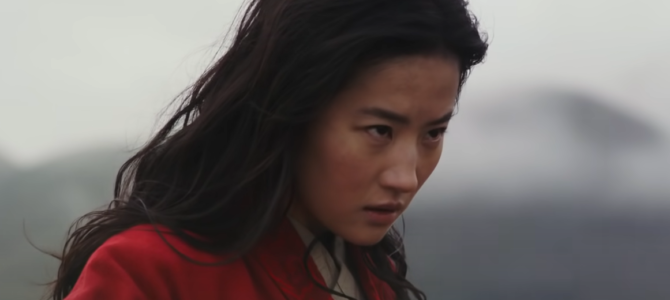
Spoilers.
There’s plenty about Disney’s live-action remake of “Mulan” to break the oh-so-magical brand that Disney has cultivated over the years.
Between lead actress Liu Yifei’s support for suppressing protesters in Hong Kong, and the movie’s credits thanking the propaganda department of the Chinese region where Muslim Uighurs are being forced into camps, there’s a lot more propaganda than pixie dust. Even setting these factors aside, the remake fails to capture the catchy wit and meaningful character arcs that the animated 1998 movie did.
In the new movie, we’re introduced to Mulan as a child with mysterious powers and skills that allow her to do awe-inspiring acrobatics on the roofs of her village. Think Marvel’s “Dr. Strange” as a Disney princess. She has these talents because she is in touch with her Chi, an Eastern concept of energy that permeates the world. But since she’s a girl, her father tells her she must hide her gift. “Chi is for warriors, not daughters,” he tells us.
After Mulan’s aging father is summoned to fight in the Imperial Army, Mulan leaves to take his place, disguising herself as a man. At this point in the animated movie, she’s an awkward but lovable young girl who wants to do what’s right but still doesn’t know what she’s doing. In the remake, she’s a mysteriously skilled warrior who has been forced by social constructs to conceal her identity.
In the original movie, she doesn’t have the brute strength of her male comrades, and has to think creatively to overcome obstacles. When the soldiers have to climb up a post while carrying two weights, she wraps the weights around the post to use as a balance; she doesn’t just beat the men by being stronger.
It’s also her femininity that helps her stand out; she’s empathetic and devoted to her family, and when she knows she can’t be the strongest fighter, she’s resourceful and becomes the smartest. When she just tries to imitate the men, she fails laughably — it’s her differences that make her more valuable.
All of that complementary contrast is gone in the new movie. There’s still a similar scene where the soldiers have to carry two weights up a mountain, but Mulan accomplishes it by deciding to embrace her Chi and channel her inner strength, or something. She’s the best soldier out there, but she was born with it.
In short, the new Mulan becomes the best by being a better man than any of the men. That’s the same approach third-wave feminism has taken for years — and it has the same pitfalls onscreen as in real life. What now makes the new Mulan special is her skill. And all her skill does is make her more macho than the men. The result is a heroine who is hard to get excited about.
As if that’s not enough, the remake is neither funny nor clever. Lovable dragon sidekick Mushu — famously voiced by Eddie Murphy, with iconic lines like “punch him, that’s how men say hello” — is gone. To be fair, it’s hard to replace Eddie Murphy. But in Mushu’s place is just a voiceless phantom of a phoenix who shows up in the sky occasionally to watch out for Mulan.
The lovable Grandmother Fa — also memorable for one-liners like “sign me up for the next war” after Li Shang comes to see Mulan — has also been cut from the lineup. And funny scenes like Mulan failing miserably to impress the matchmaker, and Mulan trying to fit in with the men when she first arrives at the army camp, have also been whittled away.
Instead, these scenes showcase her inborn superiority. A scene where Mulan’s cricket friend and the matchmaker engaged in Tom-and-Jerry antics is turned into an opportunity for Mulan to show us she can catch four falling teacups on the points of her hairpins. And instead of the animated scene in which Mulan’s laughably awkward attempts to appear manly result in chaos throughout the camp, in the live-action version the directors just make her sound bravado. “Insult me again and you’ll taste the tip of my blade,” she says to another soldier.
The remake adds a new character: a shapeshifting witch who works for villain Bori Khan. Like Mulan, she has powers that make her a social outcast, except she works for the bad guy. When she sees Mulan’s success, though, she’s inspired to change. “A woman leads the army,” she tells Khan defiantly before turning on him and helping Mulan.
It’s plausible that Disney might have needed to add another character to expand an animated movie into a deeper live-action film, but considering how little character development was invested in Mulan herself, this new role shouldn’t have been the filmmakers’ focus.
On a positive note, it’s a beautiful movie (although I got strong “Star Wars: The Phantom Menace” vibes from the movie’s portrayal of China’s Imperial City). The colors, costumes, and architecture are just the right combination of whimsical and stunning for Disney — it’s just waiting to be made into a new attraction at Disney World.
But overall, the movie just isn’t relatable or endearing. If you know how much its creators pandered to the CCP in making it, it’s even less so.









